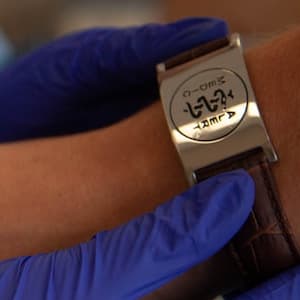charity mugger: Idiom Meaning and Origin
What does ‘charity mugger’ mean?
A "charity mugger" is a term used to describe a person who aggressively solicits donations for a charity on the street or in public places. They often employ persuasive tactics that can make people feel uncomfortable or pressured into giving money.

Idiom Explorer
A *professional victim* is someone who habitually portrays themselves as a victim in order to gain sympathy or to manipulate others.
The idiom "junkyard dog" refers to someone who is fiercely protective and aggressive in defending their territory or interests. It conveys the idea of toughness and tenacity, often used to describe individuals who are always ready to fight back or stand up for themselves.
A "honey trap" is a term used to describe a situation where someone is lured or seduced into a compromising or compromising situation, typically for the purpose of extracting information or gaining an advantage.
The idiom "hired muscle" refers to a person or group of individuals who are employed to use force or intimidation to achieve a specific goal or objective. They are typically hired by someone to protect their interests or to carry out illegal or violent activities on their behalf.
The idiom "hired gun" refers to a person who is hired to perform a specific task, often of a questionable or morally ambiguous nature, such as providing professional services, especially those involving violence or illegal activities, in exchange for payment.
The idiom "highway robbery" refers to a situation where someone is charged an exorbitant or unfair price for something, similar to being robbed while traveling on a highway.
The idiom "have one's hand out" means to ask for money or help from someone, usually in a demanding or pushy manner.
Deciphering Deceptive Solicitors
The idiom "charity mugger" is a term used to describe a person on the street who attempts to solicit donations for charity organizations. It refers to someone who aggressively and relentlessly tries to obtain money or valuables from others, often through force or intimidation. In this context, the term is applied metaphorically to individuals who approach and pester unsuspecting passersby in an attempt to collect donations for charitable causes.
The term "charity mugger" is primarily used in informal settings and is commonly heard in everyday conversations among English speakers, particularly in the United Kingdom and Australia. While the exact origin of this idiom is uncertain, it is believed to have emerged in the late 20th century, possibly as a result of the growing presence of street fundraisers soliciting donations.
Various synonyms and alternative terms exist for "charity mugger," including "chugger," a blend of "charity" and "mugger"; "charity collector"; and "street fundraiser." These terms all refer to the same concept of individuals who engage in aggressive or intrusive tactics to obtain donations for charitable causes from the public.
The idiom "charity mugger" possesses a negative connotation, as it implies a sense of annoyance, intrusiveness, or even harassment from the individuals attempting to collect donations. It can be argued that the negative perception of charity muggers stems from the frustration and inconvenience of being approached by strangers on the street and being pressured to donate to causes without prior consent or interest.
While the intention behind charity muggers is often noble, as they aim to raise funds for charitable organizations and support important causes, the aggressive approach employed by some individuals may have unintended consequences. The act of repeatedly approaching and soliciting donations from pedestrians might result in the alienation or annoyance of potential donors, potentially creating a negative association with the charity itself. However, it is important to note that not all street fundraisers follow intrusive tactics, with many adopting more respectful approaches to engage with the public.
As society continues to evolve and adapt to changing modes of fundraising, the idiom "charity mugger" raises questions about the ethics and effectiveness of street fundraising. Does the end justify the means? Can charities achieve their objectives without employing tactics that may be perceived as invasive or harassing? These are complex issues that require careful examination and consideration from both philanthropic organizations and the public at large.
The idiom "charity mugger" is related to the idiom "professional victim." A professional victim is someone who consistently puts themselves in situations where they are victimized in order to gain sympathy or attention. While "charity muggers" may not intentionally put themselves in situations to become victims, they do employ aggressive tactics in order to obtain donations. This aggressive behavior can be seen as similar to that of a professional victim, as they both use certain strategies or behaviors to achieve their goals.
The idiom "charity mugger" is also related to the idiom "curb crawler." A curb crawler refers to an individual who drives slowly along the curb in search of prostitutes or potential victims. While the behavior of a curb crawler is clearly different from that of a charity mugger, both terms describe individuals who engage in intrusive or predatory behaviors for personal gain. In the case of charity muggers, the personal gain is collecting donations for charitable causes, while the gain for a curb crawler is often sexual or predatory in nature.
Ultimately, the idiom "charity mugger" sheds light on the delicate balance between the necessity of fundraising for charitable causes and the potential negative consequences of aggressive solicitation techniques. While the term implies a certain disdain towards individuals engaged in this behavior, it also serves as a reminder of the complexities surrounding charitable giving and the need for thoughtful and respectful strategies in engaging potential donors.
Example usage
Examples of how the idiom *charity mugger* can be used in a sentence:
- She was walking down the street when a charity mugger approached her and asked for a donation.
- John always avoids eye contact with charity muggers because he does not like being solicited for money.
- Some people find charity muggers to be overly aggressive in their fundraising approach.
More "Fundraising" idioms



